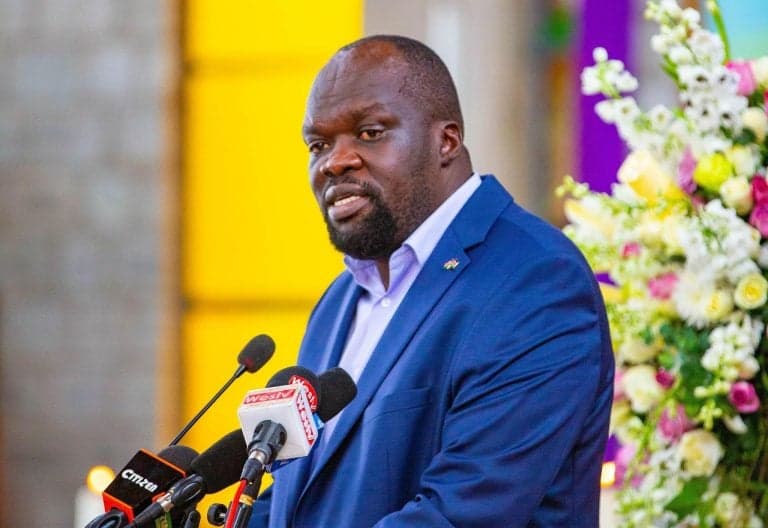We're loading the full news article for you. This includes the article content, images, author information, and related articles.
The call by Kileleshwa MCA Robert Alai for the disqualification of ODM’s Boyd Were and independent Philip Aroko amplifies national concerns over electoral violence, placing the IEBC's disciplinary authority under sharp focus ahead of the tense November 27th by-election.

NAIROBI, Kenya - Kileleshwa Member of County Assembly Robert Alai has publicly called on the Independent Electoral and Boundaries Commission (IEBC) to disqualify two candidates from the Kasipul parliamentary by-election following violent clashes that resulted in the deaths of two people on Thursday, November 6, 2025. The confrontation in Homa Bay County has escalated tensions in the run-up to the November 27 poll, prompting widespread condemnation and a formal investigation by the electoral body.
The fatal incident occurred in the Opondo area of Central Kasipul Ward when supporters of the Orange Democratic Movement (ODM) candidate, Boyd Were, and those of independent candidate Philip Aroko, clashed during campaign activities. Homa Bay County Police Commander Lawrence Koilem confirmed that two men, both aged 26, were hacked to death with machetes. The deceased were identified as supporters of Mr. Aroko. Several other people sustained injuries during the melee, which reportedly involved gunshots being fired into the air.
In a direct appeal to the electoral commission on Friday, November 7, 2025, via his X social media account, Mr. Alai urged for decisive action to quell the violence. “Hello @IEBCKenya, if sanity can return to Kasipul with the banning of Aroko and Boyd Were, please do it. Don't allow the reign of terror to persist,” the MCA stated.
The deadly violence has drawn sharp rebukes from national institutions and political parties, underscoring the perennial challenge of electoral security in Kenya. The IEBC announced on Friday that it had launched a formal investigation into the clashes. In a statement, IEBC Chairperson Erastus Ethekon condemned the “senseless acts of violence” and confirmed the commission had dispatched an investigation team to establish the facts. The commission warned that it would not hesitate to invoke penalties under the Elections Act, including the disqualification of any candidates or parties found culpable of breaching the Electoral Code of Conduct.
The ODM party, through its National Chairperson and Homa Bay Governor Gladys Wanga, also condemned the violence. In a statement, the party claimed that a peaceful voter engagement meeting for its candidate, Boyd Were, was violently disrupted by individuals allied with a rival. “The people of Kasipul deserve the right to choose their leader without fear, intimidation, and coercion,” the ODM statement read, urging security agencies to swiftly apprehend the perpetrators.
In response to the escalating tensions, Homa Bay County security officials convened a crisis meeting with both Mr. Were and Mr. Aroko on Friday, November 7. County Commissioner Ronald Mwiwawi reported that both camps had agreed to promote peace during the remainder of the campaign period.
The Kasipul parliamentary seat fell vacant following the murder of the late Member of Parliament, Charles Ong'ondo Were, who was shot dead in Nairobi in April 2025. The by-election to replace him has been fiercely contested, primarily between Boyd Were, the late MP's son, and Philip Aroko, a businessman who left the ODM party to run as an independent, citing irregularities.
The clashes on Thursday are not an isolated incident. The ODM party noted a prior event at a Women Empowerment Programme in Sikri where vehicles belonging to their supporters were allegedly vandalised. This pattern of violence casts a dark shadow over the upcoming poll and serves as a critical test for the IEBC and national security agencies' ability to manage electoral integrity and prevent bloodshed. The outcome of the IEBC's investigation is now keenly awaited as a potential precedent for handling political violence in future elections.
Keep the conversation in one place—threads here stay linked to the story and in the forums.
Other hot threads
E-sports and Gaming Community in Kenya
Active 8 months ago
The Role of Technology in Modern Agriculture (AgriTech)
Active 8 months ago
Popular Recreational Activities Across Counties
Active 8 months ago
Investing in Youth Sports Development Programs
Active 8 months ago
Key figures and persons of interest featured in this article